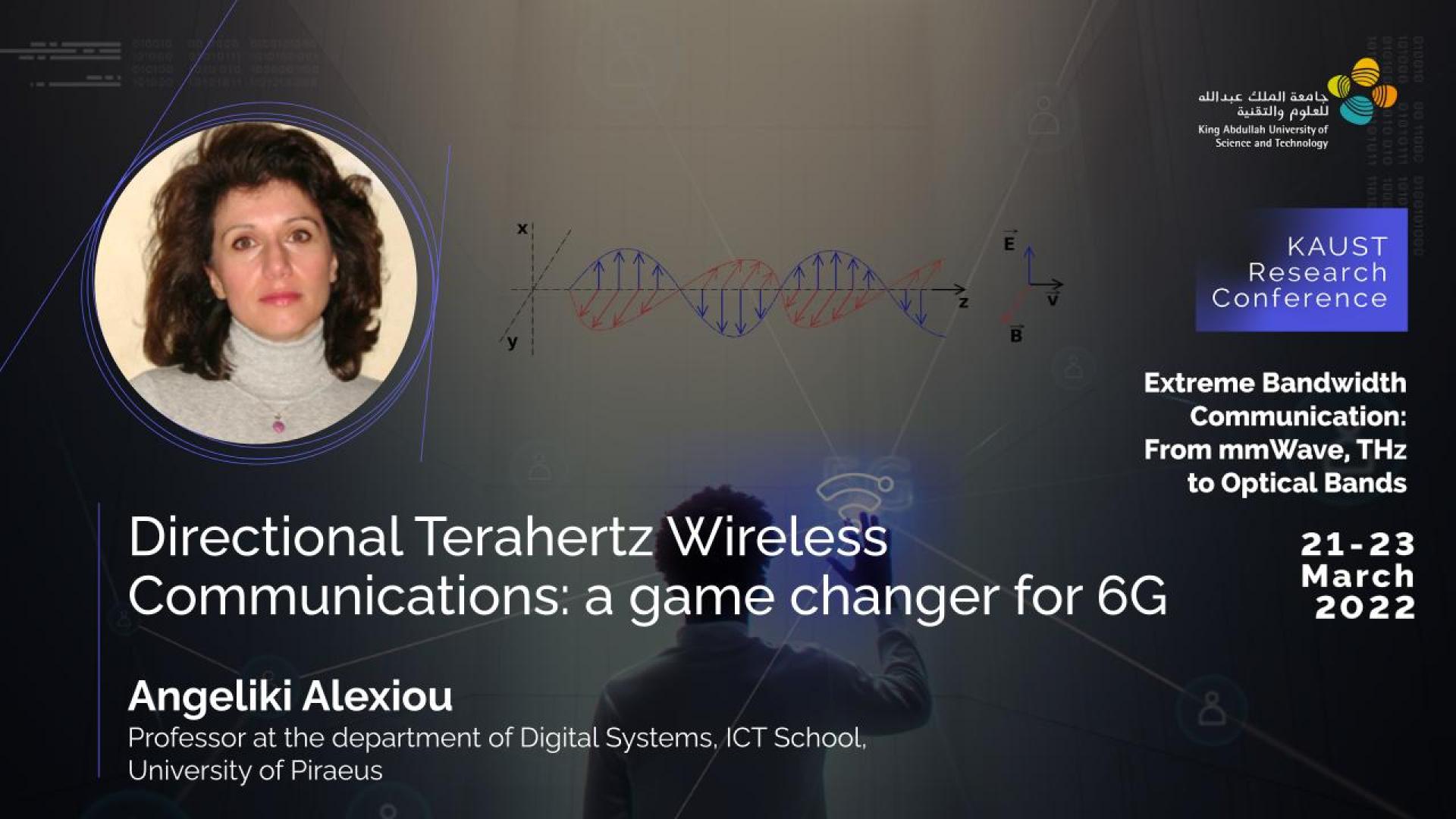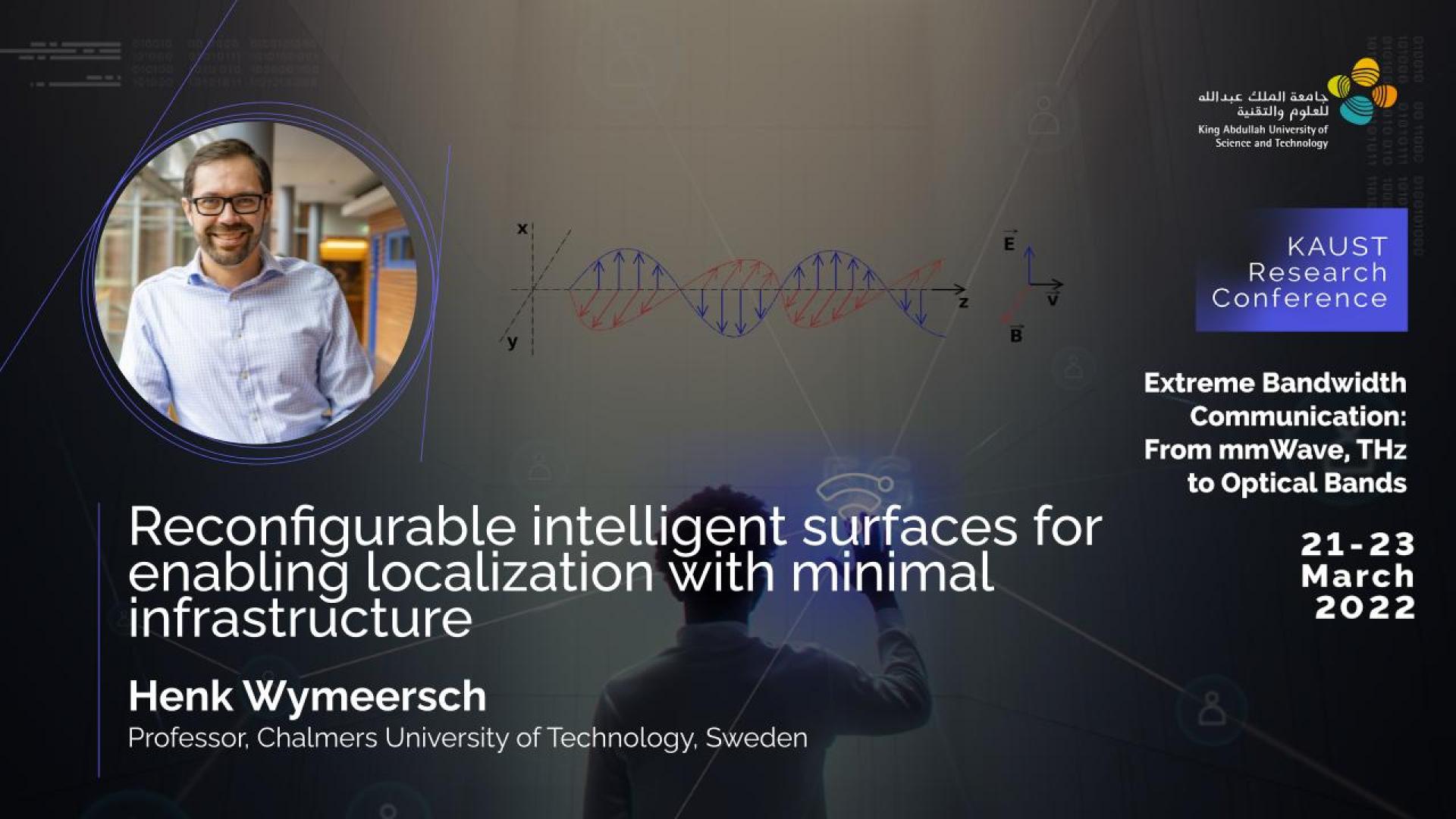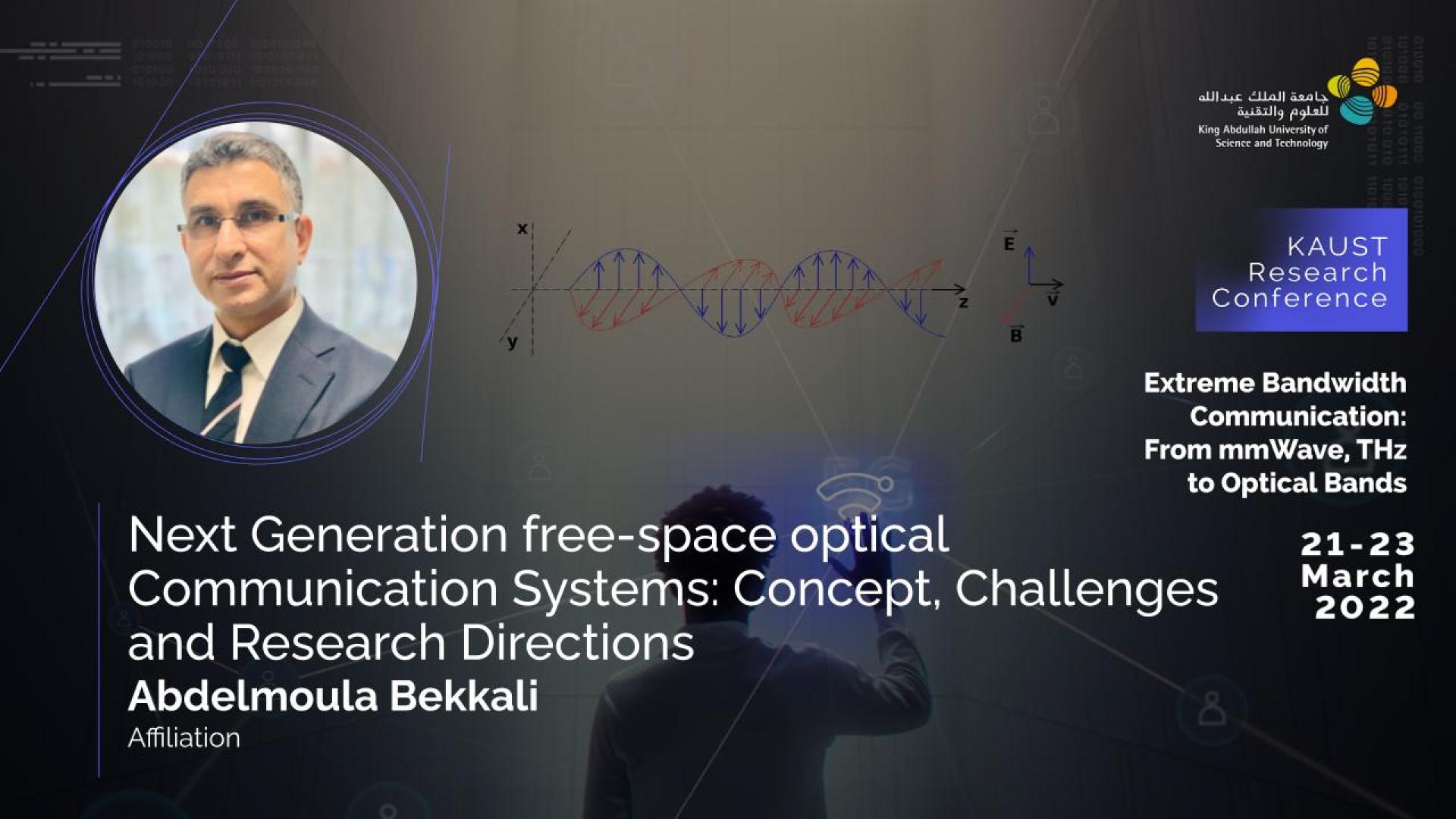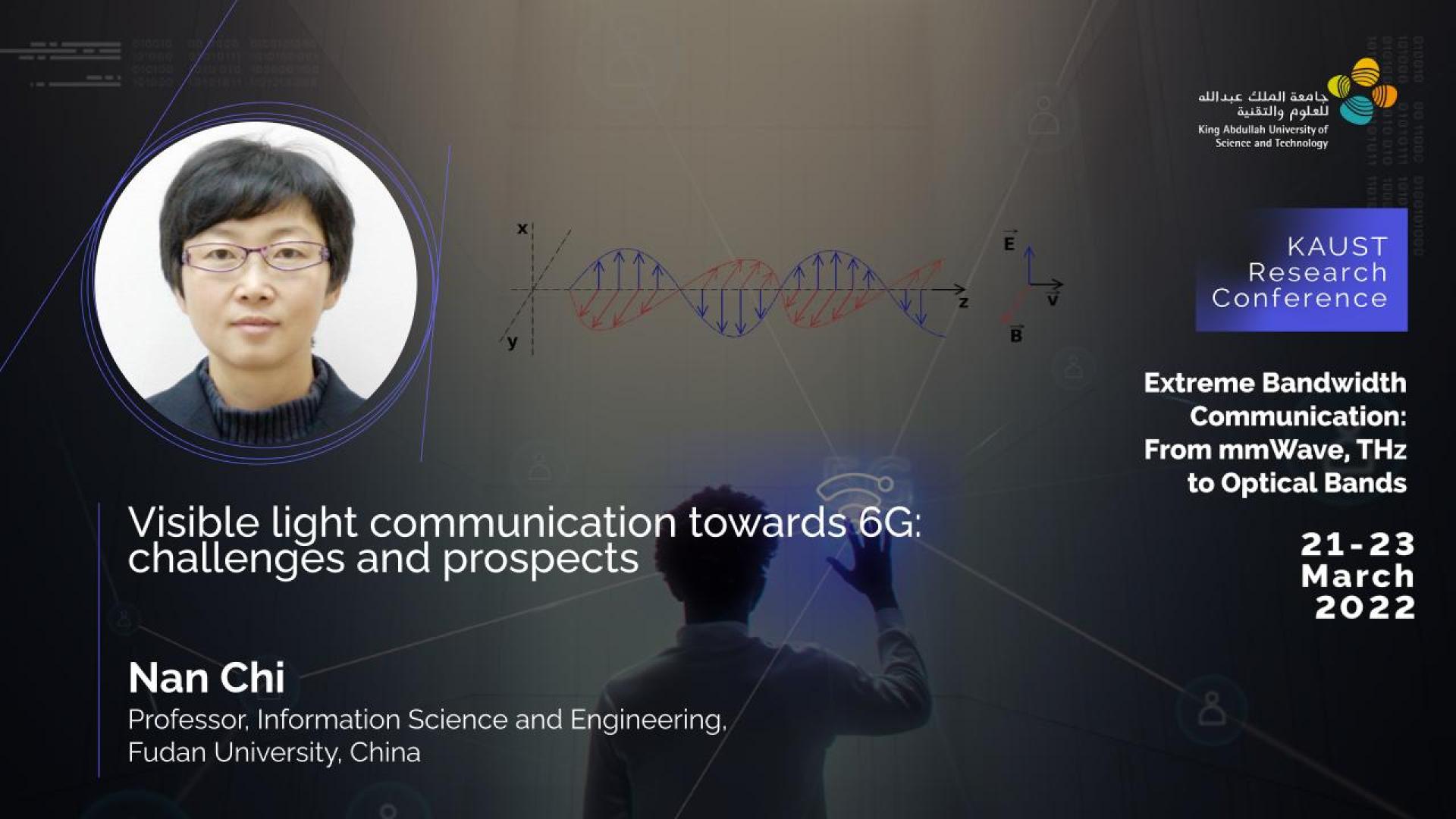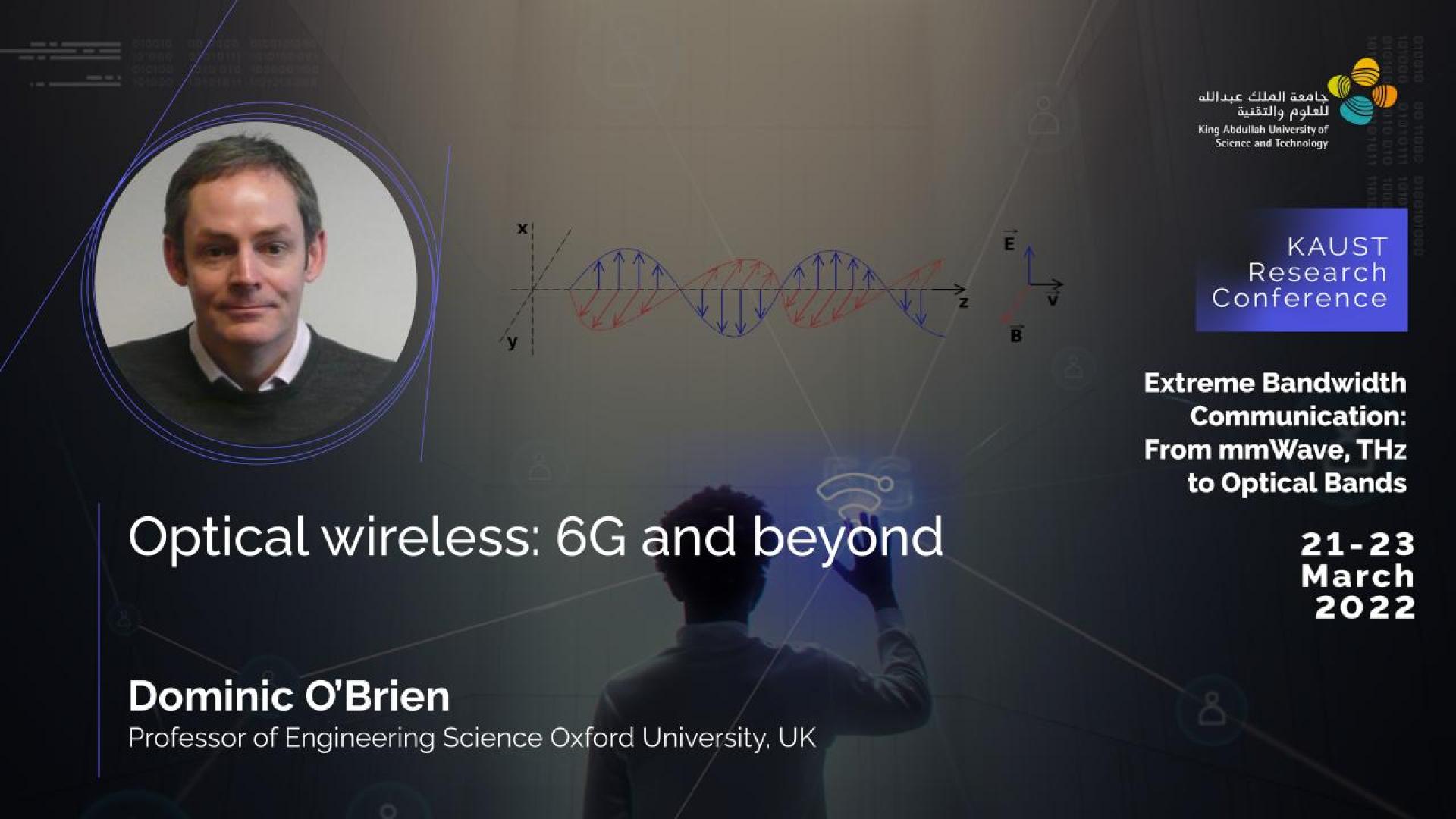Prof. Angeliki Alexiou, professor at the department of Digital Systems, University of Piraeus, Greece
Monday, March 21, 2022, 14:10
- 14:50
KAUST Library, Seaside area
Contact Person
Abstract
The exploitation of the THz band is expected to catalyze 6G systems, as a “virtual fiber”
Prof. Henk Wymeersch, Professor in Communication Systems with Dep. of Electrical Engineering, Chalmers University of Technology, Sweden
Monday, March 21, 2022, 13:30
- 14:10
KAUST Library, Seaside area
Contact Person
Abstract
Reconfigurable intelligent surfaces (RISs) have been studied extensively to improve commu
Dr. Abdelmoula Bekkali, R&D Manager at TOYO Electric Corporation, Japan, IEEE Senior member
Monday, March 21, 2022, 11:00
- 11:40
KAUST Library, Seaside area
Contact Person
The ever-increasing demand for higher data rates communication services, has led to the innovation of new advanced technologies and techniques over communication systems with the ultimate goal to fulfill the requirements of the B5G/6G networks. In this context, Free space optics (FSO) communication systems are re-gaining attraction as a promising wireless interconnecting technology for high-capacity and low-latency communication networks, ensuring data rates similar to those offered by optical fiber systems but at a fraction of its deployment cost.
In this talk, we first review the main advantages and practical challenges of the FSO systems and links. We then give an overview of the recent trends of IR based FSO systems for the B5G/6G era, including the transceiver design and system architecture. Finally, we discuss the potential integration of FSO with mmWave and THz links for reliable communication and wider coverage area.
Nan Chi, Professor, Information Science and Engineering, Fudan University, China
Monday, March 21, 2022, 10:20
- 11:00
Campus Library Seaside
Contact Person
VLC has its irreplaceable strength including rich spectrum resources, no electromagnetic disturbance, and high-security guarantee. Therefore it can be adopted as an alternative approach in 6G. In this report, a summary of the latest progress of VLC system will be introduced, which includes novel devices, advanced modulation, high-speed system, and Artificial intelligence (AI) related signal processing algorithm. We will also discuss the challenges and the prospects of high-speed VLC system in 6G.
Dominic O’Brien, Professor of Engineering Science Oxford University, UK
Monday, March 21, 2022, 09:00
- 10:00
Campus Library Seaside
Contact Person
Over the past four decades or so optical wireless has made rapid progress, with data-rates of Tb/s being shown in lab- demonstrations, and a growing commercial sector. At the same time quantum communications is maturing, with plans for global satellite networks using free-space optical links to enable secure communications. There are also a number of new technologies, such as single photon detectors, that are becoming low-cost, and offer the potential for new levels of performance. At the same time, the demand for wireless communications grows exponentially. The move of RF communications to ever-higher carrier frequencies brings the same challenges that light experiences, and a model that uses bands of frequencies to provide reliable channels, combined with those to provide capacity is evolving.
This talk will survey the capabilities of optical wireless, both classical and quantum, present some of the challenges, and opportunities in what is an increasingly complex and diverse wireless communications landscape.
